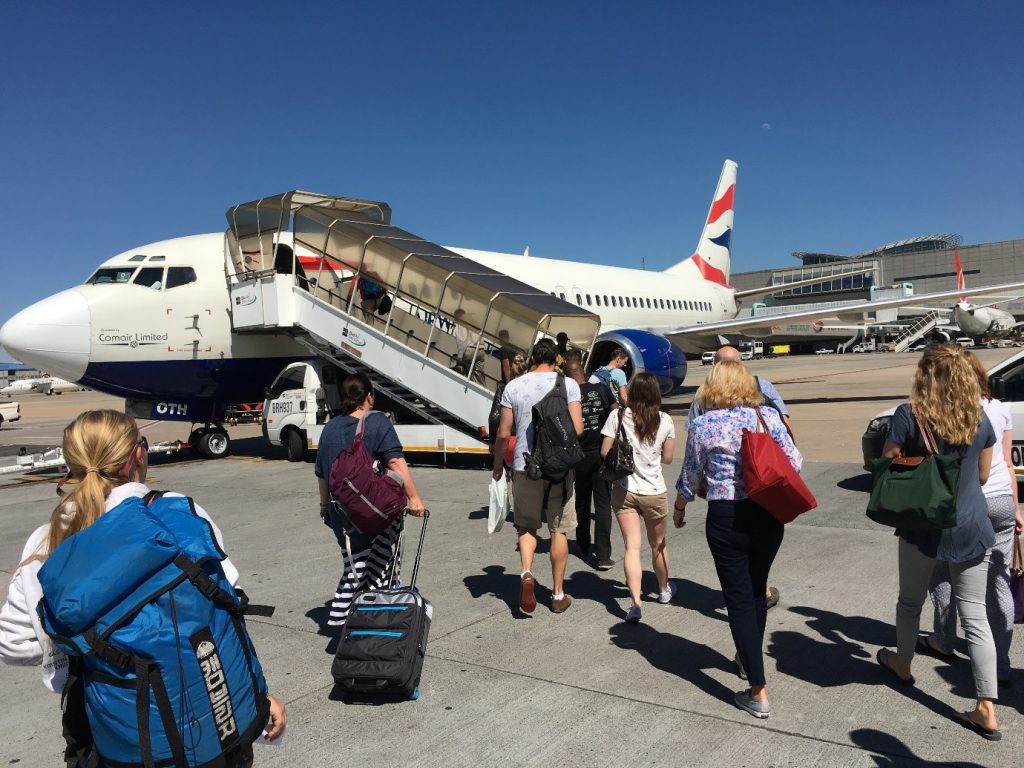Demand for air transport in Southern Africa is expected to increase slowly by 2% to 3% a year over the next five years, reflecting weak GDP performances in the region, according to AASA projections. Africa overall is expected to report a collective loss of $100m for the period, reflecting relatively stronger performances of Ethiopian Airlines and Air Mauritius.
AASA CEO Chris Zweigenthal told delegates to the association’s annual general assembly that the airline industry needs Southern African governments to clarify their local economic reform policies “so they do not spoil the appetite for much-needed trade and investment in the region”.
Africa’s share of the global aviation market stands between 1% and 5%, but the African aviation industry during the recent period of world economic crisis, enjoyed a significant growth rate (5%-7%) compared with other regions of the world,
“For the aviation industry to expand and fulfil its potential in supporting jobs and enabling economies to become stronger, passenger growth must return to levels greater than 5%. To accommodate the volumes, we will need to operate more flights. This will require appropriate investment in modern aircraft, in airports and in airspace management infrastructure and systems,” Zweigenthal said.
“Tourism, along with trade, is a powerful lever of growth,” he said, “but they are being stunted by uncertainties.”
Referring specifically to SA, he acknowledged the efforts to change the visa regime, but said more reform is needed.
This was reiterated by Paul Steele, vice-president of the International Air Transport Association (IATA):
“Restrictive visa regimes still flourish on the continent and the sad fact is that it is still easier for Europeans to travel around Africa than it is for Africans themselves. Surely this has to change.”
The regional industry is impeded by airlines’ inability to repatriate their revenues from some African countries, including Angola, Zimbabwe and Mozambique, and by inadequate data protection legislation. “[Laws] that had been passed were inconsistent, while airlines in Southern Africa were now also required to comply with the EU’s General Data Protection Regulations if they sold or marketed services and products to EU citizens and residents.”
Transport minister Blade Nzimande, whose speech to the assembly was delivered by Poppy Khoza, CEO of SA’s Civil Aviation Authority, said decades of economic stagnation and low per-capita incomes in many African countries have made commercial aviation in Africa the least developed in the world.
“Africa’s share of the global aviation market stands between 1% and 5%, but the African aviation industry during the recent period of world economic crisis, enjoyed a significant growth rate (5%-7%) compared with other regions of the world,” Nzimande said.
Intra-African traffic volumes stand at about 30% of the total African air transport traffic, because most intra-African aviation markets are closed and regulated through bilateral agreements, despite the 1999 Yamoussoukro Decision, or Open Skies Agreement.
The Yamoussoukro Decision, a multilateral agreement between Africa’s 54 countries, is designed to liberalise the continent’s aviation market by permitting African airlines to fly into another airspace and land on its territory and by eliminating the need for separate bilateral air service agreements between individual countries.
Nzimande said many African countries still restricted their air services markets in contradiction of the open-skies agreement to protect the share held by state-owned air carriers. “If operators in Africa do not take advantage of open skies, airlines from other parts of the world will overtake those in Africa.”

